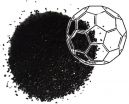INFORMATION:
Mini chromosomes that strengthen tumors
2014-12-04
(Press-News.org) Cancers are due to genetic aberrations in certain cells that gain the ability to divide indefinitely. This proliferation of sick cells generates tumors, which gradually invade healthy tissue. Therefore, current therapies essentially seek to destroy cancer cells to stop their proliferation. Through high-throughput genetic sequencing of glioblastoma cells, one of the most deadly brain tumors, a team of geneticists from the University of Geneva's (UNIGE) Faculty of Medicine discovered that some of these mutations are caused by supplemental extrachromosomal DNA fragments, called double minutes, which enable cancer cells to better adapt to their environment and therefore better resist to treatments meant to destroy them. Read more in Nature Communications.
Although scientists have known for about twenty years about double minutes, little chromosomal fragments which sometimes appear during cellular division, they have just started to understand their exact function. Due to replication errors, these mini-chromosomes lack centromere, which allows them to replicate extremely rapidly and autonomously. Scientists therefore suspect that they play a role in the development of cancers, diseases that are caused by mutations in genes that control cellular metabolism and development.
Professor Stylianos Antonarakis and his team in the Genetic Medicine and Development Department of UNIGE's Faculty of Medicine, in collaboration with the Geneva University Hospitals' (HUG) Centre of Oncology, identified double minutes in glioblastoma cells with specific oncogenes. To this end, the scientists used advanced methods of bioinformatics to perform high-throughput genetic sequencing. The researchers then noticed that one of the main genetic mutations responsible for the anarchic development of cancer cells was not found on actual chromosomes, but only on these double minutes, which, given their very fast proliferation, multiplied the impact of this mutation. The researchers had therefore identified an oncogene whose malignancy was amplified by the number of its copies present on each double minute, but which was not present on the chromosomes themselves.
An Intriguing Adaptability in DNA
The Geneva team also discovered that cells can modulate the number of double minutes according to their environment, and especially in response to chemotherapy. To counter the aggression caused by these treatments and ensure its survival, the cell reduces its number of double minutes until they disappear completely. It is thus freed from the oncogenetic mutation that was present in these DNA fragments. But glioblastoma, like most cancers, depends on a combination of several genes. The tumor therefore begins to exploit a new gene in order to keep growing. «Paradoxically, the cell can return to its initial chromosomal state with regards to that specific oncogene, but other oncogenic genes are then activated in the still living cell. The double minutes therefore act as adjustment variables in cancer cells and limit the effects of therapies,» explains Sergei Nikolaev, joint lead author of the study.
These mini-chromosomes amplify the harmful effects of oncogenes and give a selective advantage to sick cells compared with healthy cells, as the tumor grows. In fact, their presence has been detected in most very aggressive cancers. «We must absolutely continue our research in order to better understand this phenomenon of DNA adaptation,» emphasizes Federico Santoni, joint lead author of this study. «This will allow us to better measure its implications, and perhaps to find more effective therapeutic strategies against the deadliest cancers,» he concludes.
ELSE PRESS RELEASES FROM THIS DATE:
Localized climate change contributed to ancient southwest depopulation
2014-12-04
PULLMAN, Wash.--Washington State University researchers have detailed the role of localized climate change in one of the great mysteries of North American archaeology: the depopulation of southwest Colorado by ancestral Pueblo people in the late 1200s.
In the process, they address one of the mysteries of modern-day climate change: How will humans react?
Writing in Nature Communications, WSU archaeologist Tim Kohler and post-doctoral researcher Kyle Bocinsky use tree-ring data, the growth requirements of traditional maize crops and a suite of computer programs to make ...
Technology breakthrough reveals cellular transcription process
2014-12-04
This news release is available in French. A new technology that reveals cellular gene transcription in greater detail has been developed by Dr. Daniel Kaufmann of the University of Montreal Hospital Research Centre (CRCHUM) and the research team he directed. "This new research tool offers us a more profound view of the immune responses that are involved in a range of diseases, such as HIV infection. At the level of gene transcription, this had been difficult, complex and costly to do with current technologies, such as microscopy," explained the University of Montreal ...
Dirt provides new insight into Roman burials
2014-12-04
The first scientific evidence of frankincense being used in Roman burial rites in Britain has been uncovered by a team of archaeological scientists led by the University of Bradford. The findings - published today in the Journal of Archaeological Science - prove that, even while the Roman Empire was in decline, these precious substances were being transported to its furthest northern outpost.
The discovery was made by carrying out molecular analysis of materials previously thought to be of little interest - debris inside burial containers and residues on skeletal remains ...
Preliminary study suggests Parkinson's drugs safe for the heart
2014-12-04
Vienna, Austria - 04 December 2014: Non-ergot derived dopamine agonists used to treat Parkinson's disease may be safe for the heart, according to preliminary research presented at EuroEcho-Imaging 2014 by Dr Hilal Erken Pamukcu, cardiologist at Ankara Diskapi Education and Research Hospital in Turkey.
EuroEcho-Imaging is the annual meeting of the European Association of Cardiovascular Imaging (EACVI), a registered branch of the European Society of Cardiology (ESC), and is held 3-6 December in Vienna, Austria.
Dr Erken Pamukcu said: "Parkinson's disease is a neurological ...
Medications for patients with first episode psychosis may not meet guidelines
2014-12-04
Many patients with first-episode psychosis receive medications that do not comply with recommended guidelines for first-episode treatment, researchers have found. Current guidelines emphasize low doses of antipsychotic drugs and strategies for minimizing the side effects that might contribute to patients stopping their medication. A study finds that almost 40 percent of people with first-episode psychosis in community mental health clinics across the country might benefit from medication treatment changes.
Psychosis is a mental disorder in which thoughts and emotions ...
Cancer from asbestos caused by more than one cell mutation
2014-12-04
It has been a long held belief that tumors arising from exposure to asbestos are caused by mutations in one cell, which then produces multiple clones. This hypothesis is challenged by new research published in the open access Journal of Translational Medicine, which suggests it is caused by mutations in multiple cells.
Malignant mesothelioma is a rare form of cancer that affects the mesothelium - the protective lining that covers the internal organs, such as the lungs, the heart and the abdominal cavity. It is estimated that malignant mesothelioma affects up to 3,200 ...
No link found between bladder cancer and use of pioglitazone or rosiglitazone, Avandia
2014-12-04
Some previous studies have linked the diabetes medication pioglitazone to bladder cancer. However a new study − including more than one million people in six populations worldwide − has found no link between either pioglitazone or rosiglitazone (also known as Avandia) and bladder cancer. The new study is published in Diabetologia (the journal of the European Association for the Study of Diabetes), and is by Dr Samira Bell, Professor Helen Colhoun and Mr Danny Levin, University of Dundee, UK, and colleagues from the International Diabetes and Cancer Research ...
The Lancet Respiratory Medicine: Current guidelines not clear on which children most at risk of severe flu complications
2014-12-04
Children born prematurely are at an increased risk of flu-related complications, despite not being identified as an "at risk" group in UK, USA, or WHO guidelines, and should be a priority group for the seasonal flu vaccination, new research published in The Lancet Respiratory Medicine suggests.
"Until now, guidelines highlighting groups at greater risk of developing complications from influenza, such as pneumonia, have been based on consensus opinion rather than on systematic assessment of the evidence"*, explains Dr Kay Wang from the University of Oxford in the UK. ...
NIH researchers link chromosome region to duplication of gene on X chromosome appears to cause excessive growth
2014-12-04
Researchers at the National Institutes of Health have found a duplication of a short stretch of the X chromosome in some people with a rare disorder that causes excessive childhood growth. They believe that a single gene within the region likely has a large influence on how much children grow. The research comes from a lab at NIH's Eunice Kennedy Shriver National Institute of Child Health and Human Development (NICHD), which seeks to understand growth.
"Finding the gene responsible for childhood overgrowth would be very helpful, but the much wider question is what ...
Buckyballs enhance carbon capture
2014-12-04
HOUSTON - (Dec. 3, 2014) - Rice University scientists have discovered an environmentally friendly carbon-capture method that could be equally adept at drawing carbon dioxide emissions from industrial flue gases and natural gas wells.
The Rice lab of chemist Andrew Barron revealed in a proof-of-concept study that amine-rich compounds are highly effective at capturing the greenhouse gas when combined with carbon-60 molecules.
The research is the subject of an open-access paper today in Nature's online journal Scientific Reports.
"We had two goals," Barron said. "One ...

